George and Carol Shannon were on their last night of vacation in Cabo San Lucas, Mexico when Carol had a stroke. A day later, in a hospital back in their hometown of Pittsburgh, PA, a million questions went through George’s mind. He was still working. How would he handle this? How would he be a caregiver? Would he be a caregiver? Who would take care of Carol? How long would she be in this condition? Distant and selfish by his own admission, George realized he’d taken his wife for granted during their entire 41-year marriage. But he not only rose to the occasion and cared for his wife Carol, along with her he went on a remarkable journey of discovery which allowed him to fall in love with Carol all over again. Jana talks with George and his son Chad, co-authors of “The Best Seven Years of My Life: The Story of An Unlikely Caregiver” about George’s caregiving journey of redemption.
Learn more about “The Best Seven Years” and connect with George and Chad on Facebook
- Carol and George Shannon
- Co-authors George and Chad
- The Shannon family
INTERVIEW TRANSCRIPT:
JANA PANARITES (HOST) – According to the 2015 “Caregiving in the US” study done by AARP, the typical family caregiver in America is a 49-year-old woman. But caregivers as a whole are becoming as diverse as the population of the US, and while there are very few recent studies of male caregivers, what we do know is that 40% of family caregivers of adults are men. And evidence suggests that men caring for a spouse will sacrifice and do whatever’s necessary to provide care and ensure that the needs of their loved ones are met. One of those spouses is here with us today. George Shannon not only rose to the occasion and cared for his wife Carol, but along with her he went on a remarkable journey of discovery which allowed him to fall in love with Carol all over again. George is here with his son, Chad Patrick Shannon to talk about the book they co-wrote, a memoir about George’s experience called, “The Best Seven Years of My Life: The Story of An Unlikely Caregiver.” George and Chad, welcome to the Agewyz Podcast.
GEORGE: Thank you for having us on.
CHAD: This is great. Thank you so much.
JANA: Let’s put this in context. George, maybe you can tell us a little bit about how you and your late wife Carol met. I love this story.
GEORGE: Carol and I met– I was a junior in college at Youngstown State University and Carol lived, still lived in Pittsburgh and was working as a travel agent for TWA. And a friend of mine played football for Pitt, and they were playing Notre Dame in Pittsburgh and I called him and said Joe, can you get me some tickets, so he did. And I rarely came back to Pittsburgh. I don’t think I had been home in close to a year. So I drove in for the weekend, and another friend and I went out Friday evening and walked into a restaurant and Carol was sitting with a couple of her friends that I knew.
And so we were introduced, and I sat down and talked with her and all four of them, for a couple of hours. And as I was leaving, I got a tug on my sleeve and she handed me a piece of paper with her name and phone number on it, and said, give me a call. Which didn’t seem too unusual, but as I got to know Carol, that is about as bold as she would ever get. I knew her for 48 years, and that was the boldest thing I’ve ever seen her do. And I did… I called her and took her to a party the next night, and that’s how we began our relationship.
JANA: Well, it’s funny that you mentioned– because this is sort of something that runs through the book, the theme that runs through the book… that you were the decision-maker in the marriage and she was more accommodating, but I also found it interesting that she asked you, so when are we going to get married? I mean, that’s pretty forward.
GEORGE: Yeah, yeah. Okay. That’s the second part of the story is, we had been dating for about a year or less and I picked her up one night. We were going out to a mall, and on the way out to the mall she turned to me and she said, so are we going to get married? I was really caught off guard and I just looked her and said, well, yeah, sure. If you want to, let’s do it. So from the time I met Carol to the time we got married it was about a year and a half. And so yes, you’re right. The two boldest things she’s ever done in her life with me is, handing me the piece of paper with her phone number on it and then subsequently asking me to marry her.
JANA: Those are two pretty bold moves.
GEORGE: They were very bold moves. Yeah.
JANA: So the book does a really nice job right from the beginning of setting the tone of your marriage in chapter one, where you kind of have this description of being in Cabo San Lucas for a vacation in 2010, and you describe a taxi ride from the airport. And it was at that moment when you were riding in total silence that you realized you were leading separate lives. I wonder if you can in some way, elaborate a little bit on your relationship with Carol up to that point. Your marriage.
GEORGE: Carol was very unassuming and humble, and she always deferred to me. And no matter what we did in our life, I always made the decisions and she was just fine with that. We move frequently with my job, and I never gave her the courtesy of going home and saying, do you want to do this? I just went home and said, we’re going to do this. And it just seemed to be a natural way to live our life for many, many years.
And so what happened is because Carol was so easy-going and wanting to please me and willing to do whatever I wanted to do, I knowingly started taking advantage of that. I became a very selfish person in our marriage. Everything was about me and for me. Carol would always go along with it. She never pushed back. And so when Carol got sick, I realized that I had to change my relationship. I had to change the way I looked at my relationship with Carol.
And it began right after the strokes in Cabo San Lucas on the way home. We were sitting on a plane and Carol couldn’t communicate, but she was just staring. If you’ve ever seen anybody with strokes, you know that they just have this stare. You know, they can’t talk much, they can’t eat much, they can’t do much of anything and they’re sort of in a daze. And she had these big, beautiful blue eyes that just sort of popped out of her head.
And Carol was a tiny little person, she was about four foot ten. And she was just staring at me, and as Chad described it in the book, I just got this sense that what she was trying to say to me is, I trust you. I just trust you to fix this. And that’s the message I received. And it was at that point that I decided that I had to do whatever I could do to make Carol healthy again.
JANA: Chad, you have two brothers, you’re the middle child as I read. Maybe you can tell us what your perspective of your folks’ marriage is. And I read in a New York Times article, you said that your dad was a type-A, intense person and someone your friends were afraid of. Which is so interesting– growing up– which is so interesting because I have a perception of my parents from when I was younger, too. And you never forget how your friends react to your parents.
CHAD: Well, that’s true. We recently met up with one of my friends after the New York Times article, and my dad sort of teased him– his name is Brendan. And he sort of teased him and said, Brendan, you and I have some talking to do, because Chad told me you’re one of the friends that was intimidated. And uh, my dad just laughed and Brendan laughed. And there was a sort of sense of humor and lightness about it that my dad really didn’t exhibit as much when he was younger. And what I remember growing up was that he was very driven, and he always has been driven to support his family. And in doing so, I think we maybe misunderstood him a little bit.
But that was tough to see, because the goal was to provide for us. So he worked hard. He had to take customers out. He had a type-A personality. And so that’s what I remember. And I remember my mom deferring and relying on him, and there was love there, it just didn’t seem as on the surface. You know, after the strokes and my dad changed sort of his personality and my mom did too, there was this joy that you could see. And that’s what I remember.
JANA: Let’s maybe take the listeners through that experience of Carol’s first stroke. George, you told a little bit of the story early on. You were in Cabo San Lucas with some family members for a vacation. You were near retirement, not retired yet. And on the– it was actually the final night of the vacation when Carol had her stroke. And the story about the poker game, and Carol using her right hand only, was really fascinating. And then later finding her in the bathroom. For people who don’t know what having a stroke looks like, did you know at that point she was having a stroke? What went through your mind?
GEORGE: I didn’t think of it during the poker game and in retrospect I should have, because Carol had two small strokes in the two years previous. And so I was aware of what a stroke looked like. And if you look at a person with a stroke, they have the stare to them. If you ask them to open their mouth their tongue will usually go to one side or the other. Or one side of their face may be– I would say paralyzed, the other not. You can tell that there’s something that’s malfunctioning physically. And I didn’t put that together while she was playing cards.
But Carol had diabetes, she was a type 2 diabetic, and so we had a doctor come while we were in Mexico and I didn’t know what to do. And so we called the doctor and he made a house call. He checked her out and he said she was fine, and that she was probably having low blood sugar. So we gave her some orange juice and she seemed to respond to that. So then the evening ended and we went to bed. And at four o’clock in the morning I woke up and she wasn’t in bed. I went into the bathroom to check on her, and she was sitting Indian-style in the middle of the floor, staring at the ceiling with a smile on her face. And I said, Carol, what’s wrong with you? And she just looked at me and smiled and looked back at the ceiling.
Well, that’s when I realized she had had a stroke. And my concern was, now what do I do? I’m in Mexico. I didn’t know anything about the Mexico medical system. It could have been very good– I just didn’t know. And I didn’t know if my insurance would cover putting her in the hospital. So I called the neurologist in Pittsburgh that Carol had, and I said, can I take the chance to get her back to the states? Back home?
He said, well, it’s not for me to say that, but I would venture to say that we’d probably give her better care if you could get her back here. Well, you can’t just leave a foreign country and go into the United States and walk into an emergency room. You have to have a doctor admit you from the United States. So I had to make some phone calls to some doctor friends. And we did get Carol permission to enter a hospital in Van Nuys [California].
So we got on a plane and we flew to San Diego, and that was a three and a half hour flight. And I was afraid to death Carol would have another stroke in flight. She didn’t. Then we had to go through customs and there was a long delay. And then I realized that from San Diego to Van Nuys was time-consuming. And then from Van Nuys to the airport to the hospital was also time-consuming.
And I start doing the math. I said, you know, if I just turn right, I can fly across the United States and get back to Pittsburgh in not too much longer. Well, I decided to do that. But it did take longer because we had a lot of headwinds and we had to stop and refuel, which took us a while to get home. But the whole time we’re on the plane, I was thinking to myself, oh my God, if she has another stroke, it’s going to be terrible. But I was fortunate. Carol was fortunate. She made it all the way back. We got back at 11 o’clock that night, Chad met us at the airport and we took her down to the hospital and had her admitted, and she had not had another stroke in the process. So we were very fortunate to be able to do that.
JANA: And so what sort of questions went through your mind at the hospital? And did you feel equipped to handle what was next?
GEORGE: I did not feel equipped at all. I had no idea what was about to happen. I didn’t know how to care for somebody who had a stroke. I didn’t, I didn’t know what the post-stroke rehab would look like. I didn’t know if Carol was going to live. We had no idea what was going on internally. And so I sat through the night in the emergency room with her and just wondered, what am I going to do? How am I going to handle this? How am I going to be a caregiver? Am I going to be a caregiver? Who’s going to take care of her? I’m still working. What’s it going to require to take care of her? Is the house safe enough? What’s her rehab going to look like? How long is she going to be in this condition?
So I had a million questions going through my head and I didn’t have any answers for it at the time. I just decided that I had to take it one day at a time. There’s a quote in the book by Robert Frost, it says the way out is through it. And as Chad describes in the book, I was in a forest. I was lost. And my choices were to sit down and wait for help, or find a way out. And I chose to find a way out. And I chose to find the good. I looked for the good. I sat there and said to myself, there’s a lot of things that happen in life that you don’t choose, but you do get to choose your response to those things. And I didn’t choose to be in this situation, nor did Carol. But now it was all up to me. And I had made all the decisions all our life, and these were bigger decisions. And I know that Carol would trust me and defer to me.
And so I chose to find the good. And the good meant that I had the change the way I thought about my relationship with Carol. It couldn’t be about me anymore. It had to be totally about her. And at first, I was taking care of Carol when she got out of the hospital, and I was doing everything that you’re supposed to do as a caregiver. And the responsibilities are overwhelming. You make appointments and you have to go to the appointments, you have to go to rehab, you have to buy groceries, you have to bathe and you have sleepless nights.
And I was doing all those things and when I laid down at night I would think to myself, wow, what did I lose out on today? I couldn’t play golf with my buddies. I couldn’t go out and have a beer with my buddies. And so I realized at that time, it was about me. I was doing all these things for Carol, but it wasn’t about her, it was about me. So that’s when I decided that I had to make it all about her. And I had to decide, no matter what happened, I couldn’t worry about what I had to sacrifice. And that’s when I changed. That’s when everything changed with me. I developed a sense of humility. I did things all day. I laid down at night and I didn’t worry about me anymore. And that’s when I found unconditional love. That’s when my heart opened up, my soul opened up and you could just feel the connection between Carol and I.
She sensed it, and I sensed that she knew I was all in. And she knew that her trust in me was worthy, and that I was going to take care of her. I developed this attitude that I want every day to be the best day of Carol’s life because it may be her last. The doctors implied that she had one to two years to live. And Chad and Matthew and Sean, my other two sons, we gathered and we talked and we said, you know, all we have to offer mom now is our love. Just give her our love. Make her feel the love every day. And if she feels the love every day and she passes, she’s going to pass knowing she was deeply loved. And that’s what happened. It took longer, because it was seven years. And I believe it was seven years because of the love she received. When you get that much love, you get a lot of good care too. That just happens.
JANA: Yeah, I completely agree with you. Chad, how are you faring through all of this? What were your emotions going through this?
CHAD: Great question. I’ve never been asked that, despite all the interviews. The thing that was really going through my mind was, a similar situation that I think my dad felt I felt it as well, which was this: you know when something like this happens, you tend to stop in life and take an accounting of things. And I had not been spending enough time with my mom. I had not been showing her enough affection and care and concern. And we had a decent relationship, I just wasn’t calling as much. I wasn’t stopping by as much, and it just really reinvigorated my relationship with her as well. And that was the one half of it, you know? The other half was that, my dad and I always shared a bond of love, but we weren’t as close as we are now.
And even before the book– the book itself made us so close– but even before the book I gained a whole different appreciation of him and his willingness to put himself in a position to find that unconditional love. And so that was inspiring. That transformed me as well, because it gave me a role model. It gave me a vision of what I need to do in my life if something like that comes up. So it really did strengthen the relationship with me and my parents, and my brothers as well. I mean, we had some tough times. It was stressful. There were fights, but we got through it and we got through it stronger.
JANA: And you were the local son, so you probably were involved in ways that they weren’t. Not that they were hands off, but this is typically what happens, right? One of the siblings kind of gets more involved. And you alluded to some learnings that you got about caregiving that you thought might be useful for yourself down the road. I wonder if you can elaborate on that.
CHAD: Absolutely. And you’re right, because I was local, I actually moved in for a year.
JANA: Oh, wow. Good for you.
CHAD: I had a situation—yeah, I didn’t want to draw attention to myself in the book so I didn’t mention it, but thank you. But yeah, I had an opportunity to do it because– I’m married now to a wonderful woman named Katherine, and at the time I had not yet met her, so I moved home to be with my mother and father. And sadly enough, my grandmother, my mom’s mother, died right around the same time that my mom was having a stroke. So my grandfather, at 90 years old, moved in too.
So it was really a wonderful opportunity to live… it was a really cool experience, to be a part of that. So we, we all got involved. We all jumped in. So that’s your answer to that question. On the question of how it impacted me, you know my wife had a small injury not too long ago, a broken arm. I immediately thought of the things that my dad did and how he approached things. I had a similar situation where the first night that she got injured, I may not have been sensitive enough, but the next day I started really realizing what I needed to do to be a better husband for her and to help her out and make her experience at least as painless as possible.
JANA: George, you earlier made reference to getting some help, but you were doing a lot of things on your own right away. I was happy to read that you hired a CNA and I thought it was funny when you wrote, or the two of you wrote, that Carol preferred Jennifer’s bathing technique to your hosing down approach. [both laugh] These are like activities, you know, daily bathing and stuff like that, that guys aren’t necessarily used to doing. So, I mean how hard was that for you at first? And awkward maybe, in a way.
GEORGE: You know, I took care of all Carol’ s personal needs all the time. And by the way, so did my sons. Chad and his brothers– Chad was around most often, but when they were around also. When we were out in public and Carol had to go to the bathroom, which she did frequently, they never hesitated. They would get up and they would take her to the bathroom– and I’m talking about walking into the Ladies room, and helping her get her pants down and get her on the toilet.
Chad and his brothers, they never hesitated. Now, that’s pretty remarkable for young men. They’re pretty sensitive to that kind of thing. And Carol was just fine with that. And so, we did that on a regular basis. But I went through a number of caregivers helping me, and I’m talking about maybe 20 hours a week. And Carol and Jennifer became very close. Jennifer knew how to bathe, and she knew how to use the lotion and give her a rub down, a massage. I would put her in the tub or put her on her chair, and just grab the hose and just, you know, and she was, she would say, I hate when you do that shit. [both laugh]
And I said, well, you’re going to get clean. I’m going to wash your hair. We’re going to clean you up. We’re going to get you dressed and we’re going to have a nice day. We’re going to have something to eat. We’re going to go to a movie, we’re going to get popcorn, everything’s going to be good. But she hated that. She complained through the whole bathing process because I was literally just hosing her down.
JANA: One of the things that was so fascinating to read was that over time, you came to realize– and this is a quote– the woman with whom I’d spent these last several years was the true Carol. She had just come into her own. And she had a very strong sense of humor, which I understood the way the book was written, that her sense of humor was not because of her stroke but despite it. And it was always there. It just sort of came out. Was she always like that? She seemed to really come into her own, even though she was ill.
GEORGE: Chad and I have talked about this at length, and she had come into her own. And the question is, did she come into her own or was she always like that and I just didn’t realize it? And that could have been. It could have been like that. A number of friends have said to mean since Carol’s passed, what a great sense of humor she had and how funny she was. And I’m like, really? I had never recognized that. Again, I was a very selfish person. I was thinking more about myself.
And so, I was always trying to change Carol. She was very deferring and very quiet, and everything that we did, cocktail parties, dinner parties, vacations, they were always my idea and they were never Carol’s idea. And I would buy all Carol’s clothes, because she didn’t like to spend time in the department store. So I would buy her clothes. And so, I was just a selfish person and I didn’t realize it. And then I started to realize it as we started to evolve. As we made this connection, I started to realize her sense of humor. She did some funny, funny things.
JANA: Give us an example, if you’d like.
GEORGE: Okay, well I’ll give you two stories. So one is, whenever you asked Carol how she felt, or was anything wrong, she would never tell you. She would always say, I’m fine. We almost named the book “I’m Fine” because that’s all she ever said. In the seven years, Carol had two strokes and because of the effect the strokes had on her balance, she had fallen and broken each hip on separate occasions, and the shoulder. And they required hospitalization, surgery, which was dangerous for somebody in her condition, to be put under, and then typically three hours of rehab in a rehab center, after these incidents. And then she had a heart attack.
And then she had triple-bypass surgery. And when the surgeon walked into her room, hours after the surgery, she was just coming awake, and she looked over at the door and he was standing in the doorway and she said to him, I’m fine. And he started laughing and said, I’ve heard that about you. And so we took her to a rehab center. I hadn’t been there for a while, and the outpatient physical therapist was a lady by the name of Wendy, and they became very close over the seven years. And we took her to see Wendy and Wendy said to her, Carol, how you feeling? She said, I’m fine. And everybody started giggling. And she said, has anything happened since I’ve seen you last? And she said, no, nothing.
And Wendy took her hands and started walking away, and as she’s walking away she said, well I talked to George a little while ago, and he told me that since I’ve seen you, you’ve actually broken a shoulder, broken a hip, had a heart attack and triple-bypass surgery. And she said she just shrugged her shoulder, put her little hand up in the air, like, what’s the big deal? So that’s the Carol that I got to know. But I guess the strokes had a lot to do with it, but I don’t think it changed her. I just think it exposed her, is what happened.
And so one of the funny stories, we were going down to the Pittsburgh Pirates baseball game and we get in bumper-to-bumper traffic. And we’re in a road that leads up to the stadium and there’s a two-lane road, and one lane’s moving traffic and there’s no traffic in the other lane. And as we turned a corner, I see about a hundred yards down the road, there’s an ambulance sitting in the road. And the ambulance is not active, they’re just sitting there. And they didn’t pull up on the sidewalk or out of the way. They’re just sitting there, and now that one lane of traffic is completely blocked. And I’m yelling at the windshield. I’m complaining, I’m complaining, I’m complaining. And Carol’s just sitting there. She’s listening like she always listens.
And so eventually we pull right up next to the ambulance and driver’s got the window down with his arm out the window. And we pull right up next to him and I look over, and I look at him eye-to-eye, and he’s staring at me. And the next thing I know, Carol puts her finger on the electric window button and the window goes down. And as I’m staring at this guy she says to me, do you have anything to say now? I said, put the window up, would you? Just put the damn window up! And so that became her sense of humor. She was doing things like that she never did before. And we just became so close and I just adored her so much. And I respected her so much because of things like that.
CHAD: There was a couple incidents that happened early on that were pretty shocking to my dad. It wasn’t just that she woke up the next day after her first day of rehab and just started being funny. She took a while to actually get her voice back and to speak up, and to get some words back because that was the nature of the second stroke. And so the two shocking events– the one is really particularly funny, the other one is easier to write than it this to say. So the one that I have in mind was at a cocktail hour or a dinner party that my dad and my mother were attending. And they were amongst a bunch of old friends, and they were sitting at a table. There was a conversation going on about one region of Pittsburgh that is considered a little bit more affluent than the others.
JANA: And this is after her second stroke? I’m sorry, I just want to make clear.
CHAD: After the second stroke.
JANA: After the second stroke. Okay.
CHAD: Yup. She’s back at home, capable of going out. So they go out. So they’re at this dinner party and there’s a section of Pittsburgh that’s a little bit more affluent than the others, and in Pittsburgh what you might call that person is a cake-eater… an allusion to the French, you know, let them eat cake kind of thing. And it’s not meant to be a totally derogatory term. It’s really meant to just kind of indicate wealth. So they’re having this exchange and they’re talking about their town and where they’re coming from and what it means to them. And one of them, I think just innocently, the two men, one of the men just innocently looked across the table, saw Carol looking at them, wanted to engage, get her talking, and just said, hey Carol, what do you think? And she looked at him and she said, in a loud and clear voice, I think you’re a bunch of assholes.
JANA: Wow!
GEORGE: She leaned across the table! She leaned across the table. And these guys were six foot four and Carol was four foot eleven. And she leaned across the table and tapped on the table and said that eye-to-eye. And I was in a state of shock. And I pulled her back by the shoulder– I’m sorry Chad, I’m just going to add to your story– I pulled her back and I said, Carol, what are you doing? God, why would you say such a thing to these people? And she looked at me and smiled and she said, that was kind of cute, wasn’t it? I said, no!
JANA: She’s like, adding gasoline to the fire.
GEORGE: Oh, my God almighty.
CHAD: The next day my dad asks her, what were you thinking? You know, he’s still kind of wondering, and wondering if he should apologize. Why did you call them a bunch of assholes? And she said, oh, I meant to call them a bunch of cake-eaters. So the intent was still there.
GEORGE: Oh, I hope they don’t hear your program.
JANA: So let’s talk a little bit about how the book came together. George, at the end of the book, in the Acknowledgements, I read that you imagined this would be a self-help caregivers guide, which it is anything but. You had no idea this would be a love story. So tell us a little bit about how the book came together.
GEORGE: Chad is an attorney, and he wanted to become a writer and a filmmaker. I encouraged him. You got to follow your passion. Don’t worry about the money. Follow your passion. And so he struggled with that for a while, but he always wanted to write a book with me. And I had some success in sales and marketing in my career. And I would say to him, Chad you know what? There’s so many sales and marketing books on the bookshelf. I can’t invent anything new.
It’s already all there. Nobody’s going to get excited about anything like that. And so I said, no, I’m not going to write a book. Well then five years into this journey with Carol, I said to Chad if you really want to write a book, maybe we could write a book about what I learned about being a caregiver. We can talk about insurance companies, the medical system, the doctors, the hospitals, the rehab facilities, the daily routine of being a caregiver. And he said, okay, great, let’s do that.
So he came over and he interviewed me, and he went away and he wrote the first chapter. And the first chapter that he gave me at that time, was very similar to what the first chapter is today. And I read the first chapter and it was very emotional to me, and I just started to cry. After I’d finally got my composure I called him and I said, Chad, this is not a do-it-yourself caregiver book. This isn’t what we agreed to. What are you doing? He said, Dad, this is a love story. I’ve seen it, I’ve been part of it and it’s a story that needs to be told. So I said, okay, let’s sit down and talk. And we did. I said, if you want to go this way, I’m okay with it.
But I’m going to be a very, very vulnerable person. I’m going to tell the truth, because if you don’t tell the truth it’s not an honest story. I said, the question I have for you [is], are you prepared to hear things about your father that may surprise you? And he said, yes I am. So we decided to write the book. And I will say that I poured my heart out to Chad about my inadequacies, and the person I used to be, and Chad never judged me. He accepted everything that I said, didn’t judge me for one minute, I never felt uncomfortable saying the things that I said. And it’s all in the book. I have such a beautiful respect for him as a writer and as a human being, and a son. He’s a beautiful son, and so are his other two brothers. They’ve been wonderful through this whole journey, and their mom passed away knowing her sons loved her deeply.
JANA: Well, it’s a beautiful book. And it’s so brave. You know, you own up to a lot, and in some ways I think you’re really too hard on yourself. But I don’t know you the way you know you, or Chad knows you, so. So Chad, do you want to add anything?
GEORGE: Well, that’s interesting that you say that, Jana, because a lot of people that do know me have said just what you said: you’re being too hard on yourself. And maybe I am. And maybe the book would take on a little different tone– it’s been two years now that Carol’s passed– and maybe it would take on a different tone, but I don’t think so. We all know what’s in our heart. We can see what’s on people’s faces, but we can’t see what’s in their heart. So that was what was in my heart. And I cleansed my heart. And I hope Carol read it. I hope she could read it, but someday I think she’ll know about it.
JANA: Yeah. Chad?
CHAD: Yeah. So it’s interesting that that came up, the thought about him being so honest, because I’m on a golf trip right now with my father-in-law, Denny, and my brother-in-law Jim, and we were in a car, they picked me up at the airport, and I guess sometime between when the book came out in December and this golf trip they both read the book. And they both had mentioned to me on the car ride down what a wonderful job they thought I did.
And then later, Denny, just my father-in-law and I were in the car, and he said to me, I got to say, I think your book was so well-written he said, but the thing that is so striking to me– and my father-in-law is a wonderful man but he’s very reserved, so for him to say something like this is pretty big– he said, the honesty that your father shared in that book is so compelling. He said, I wanted to read it because it had a nice pace, he said, but I just couldn’t get over how much honesty he was sharing and it was just such a compelling read that way. I wanted to learn more and I just so appreciated and respected it. And so, that just happened yesterday, and that was a pretty neat experience.
JANA: Well, it’s also really a tribute to you because you captured something really authentic. So kudos to you. Could you talk a little bit about the structure of the book? You put a lot of quotations in there from poets and authors… you go back and forth in time. How did you decide on the structure for this book?
CHAD: You know, that was actually interesting, that piece of it. So when I read a book or I watch a movie, I love the concept of suspended flashback– this idea that you start in the present time, then you flashback and tell the story and then you end up back in the present time. And so that structure decision was mine. The thing that my dad did very late in this project was, he had this black book of quotes, important quotes, some of them were famous people like Robert Frost, and some of them were from his father, who he respected.
And he had all these different ideas and quotes. He wanted to incorporate them in some way. And so, you know, he said, why don’t we just start each chapter off with a quote? And we thought, my friend Kyle, who is an editor helped us with this book, thought that was a great idea and he’s done over a hundred books. And I thought that was a great idea. And then he said, wait, we can’t have quotes without pictures. So we had this wonderful experience of going through hundreds and hundreds of pictures and finding the right ones. So that was really all my dad. He really wanted to give it that personal touch.
JANA: It’s nice. And what do you want readers to take away from this book, each of you?
CHAD: Go ahead, Dad.
GEORGE: I think the big take away for me, Jana, is– and I said it earlier in this discussion– that we don’t always get to choose what happens to us, but we can choose our response. And it doesn’t have to be bad. It can be a good response. When I said to Chad halfway through the book, I can’t come up with a name for the book Chad, and he said, don’t worry about it, Dad. You’ll know it when you hear it.
So we were at a cocktail party a few weeks later and a lady walked up to me, she said, I’m so sorry for everything you had to go through, I know how difficult it was for you to take care of Carol. And I looked at her and I said, with all due respect, it wasn’t difficult at all. It was the best seven years of my life. And it was the best seven years of my life because I chose to make it that way.
I chose to respond in a way that was a good response, and I didn’t sit around and feel sorry for myself. How could I feel sorry for myself? Carol didn’t feel sorry for herself. She never lost her spirit. She never lost her smile. We were very public. We were out doing things all the time. We traveled, we got her in a wheelchair and went on the airlines and we traveled, and we went to hotels, and we were very public. So who was I to feel bad for myself when I was fine and she was the one that was being so medically challenged? So that’s the big takeaway for me. There’s a lot of people, as you mentioned in the opening of this program, that are in a caregiving situation.
And it’s unrelenting. It just keeps coming at you, because the patient is sick. Nor will they get better, they get worse. And so it gets worse and worse and harder and harder. But with the right attitude, it can be a good experience. And the most important thing about the caregiving, is to make sure the person doesn’t feel alone. They do feel alone. It’s only natural. They lose their friendships, they lose their ability to communicate. Nobody stops by the house anymore, nobody texts them or calls them and they feel all alone. So it’s up to the caregiver to fill that void. And that’s what I did for Carol. I filled that void and so did Chad, and so did my other sons, and Chad’s wife Katherine. We all filled the void. And Carol felt all that love and she didn’t feel alone. And so when she passed away, she knew she was deeply loved by her family. That’s the big takeaway for me in this book.
JANA: Chad, what do you want readers to take away from this book?
CHAD: So, I think what my dad was saying he wants readers to take away, is that, you know, you really just need to slow down and let the present be the present. And when you do, you realize no matter what type of relationship it is, you realize what’s beautiful about that relationship, what is great about that relationship. And if there’s not a good relationship for one reason or another, what I think the readers should take away from this book, the central theme, I think is just that redemption never comes too late.
You always have a chance. You always have a chance to redeem yourself. And they both did it. My Dad redeemed himself in becoming less self-centered, and becoming focused on my mom and finding a way to do that led him to some beautiful things. But my own mom also redeemed herself. She also had a chance to just show her true self. And I think she was ready to go when she went, because she had lived such a fun life and such an exciting life with my father in the last seven years. That was good for her. And when it was time to go, she went.
JANA: Wow. George, I wonder what advice you have for the guys who are out there listening to this, about just maintaining your composure and surviving through caregiving. You have said a number of things that probably answered this question, but the guys need to hear from the guys.
GEORGE: I think the most important thing: caregiving typically, very often becomes a sudden event your life. It’s not something that gradually happens, it’s sudden. Somebody gets a cancer diagnosis or somebody has a heart attack or stroke, so it’s a sudden event. And the most important thing is to sit down and think through it, and don’t think about yourself. Think about the patient. That’s the most important thing. And when you find you’re thinking about the patient, you’re not thinking about yourself and you become humble. You find humility. And when you find humility in your life it spreads to the rest of your life.
And so remember that the patient is going to die someday and when they do leave, you want to know that you did a good job. And the only way you can do that is 100% dedicate yourself to the patient. And I found it just made me a better person in every phase of my life. And so my suggestion to people is, don’t panic, sit down and think through it, get all the facts and take it one day at a time. And as Chad said, just be present. Always be in the moment. Every day, every minute of every day. And take it as it comes, because it is unrelenting.
JANA: Yeah. You’ve both been through a lot. George, this is my last question. What is your life like now?
GEORGE: Wow, great question. Um, I, I’m still grieving. It’s, it’s been two years. It was two years this past Saturday. And I don’t know if it would have been different had we not written the book, but because of the book my grief is ever present. I’ve read the book eight, nine, ten times. I’ve edited it with Chad so many times over and over again. Each chapter, each sentence, everything that’s in the book Chad and I discussed. It’s amazing to me how he took thoughts and put them into the words he put them in. I said, it’s like you’re sitting in my brain. You’re just, I mean, you’re saying exactly what we talked about. It’s a beautiful way of doing it.
And so the book is over, and we’re doing these interviews. And it’s been a wonderful experience of doing these things because, I think you can tell I have a passion about my love for my family, and I love talking about it and how they were so strong, but it does create the presence of Carol all the time for me. And I’m still grieving. But the sky is starting to look a little bit more blue than gray, and I’m starting to laugh more and I’m starting to do different things. And so I am moving on with my life. I will never stop grieving, and I will never forget Carol. But I do realize that I have a life to live. I’m 73 years old and I need to move on with my life, and I need to make the rest of my life as beneficial as I possibly can.
My goal is to take this experience somehow, and share it with as many people as I can share it with and hope that they get something out of it, that people that are going through what I went through can benefit from it. And that’s what I’m hoping to do. So my life is getting brighter.
JANA: We’ve been speaking with George Shannon and his son, Chad Patrick Shannon about the book they co-wrote titled, “The Best Seven Years of My Life: The Story of An Unlikely Caregiver.” It’s raw, powerful and really well-written. So go pick it up. And you can find out more about the book by going to best seven years dot com. In the meantime, we will have links on the Agewyz website to the book’s website, plus the authors’ Facebook page where you can read more about this wonderful story. Chad and George, thank you so much for being on the show and thank you for writing this book. I thoroughly enjoyed it. Thank you so much for sharing this story with us.
GEORGE: You’re welcome, and thank you for having us on. I enjoyed talking with you for the past hour, Jana.
JANA: Me too. Bye-bye.
CHAD: Bye.

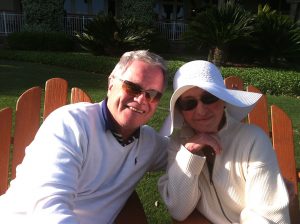
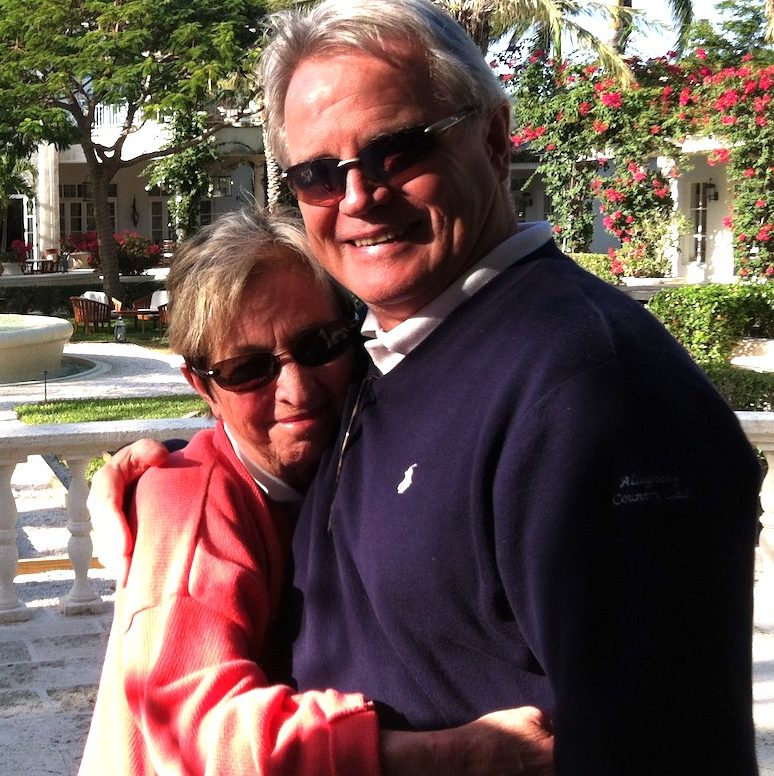
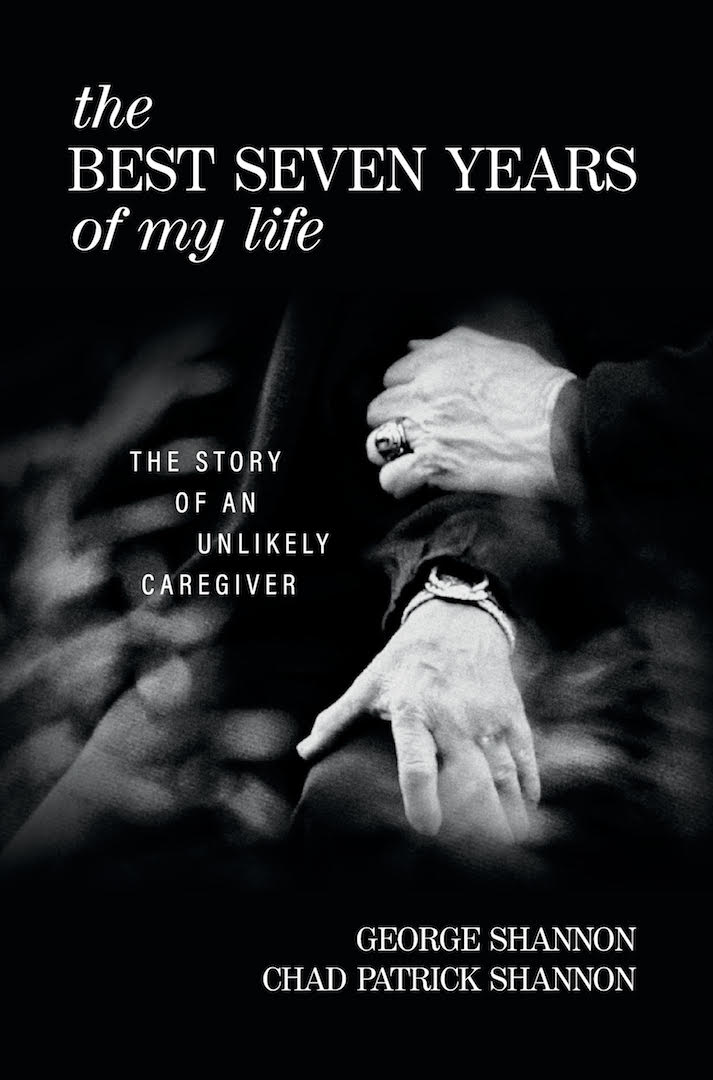
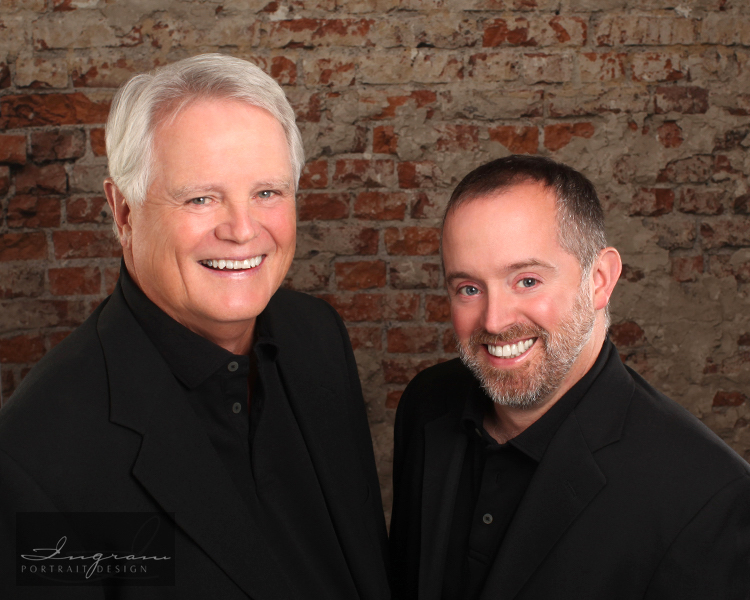
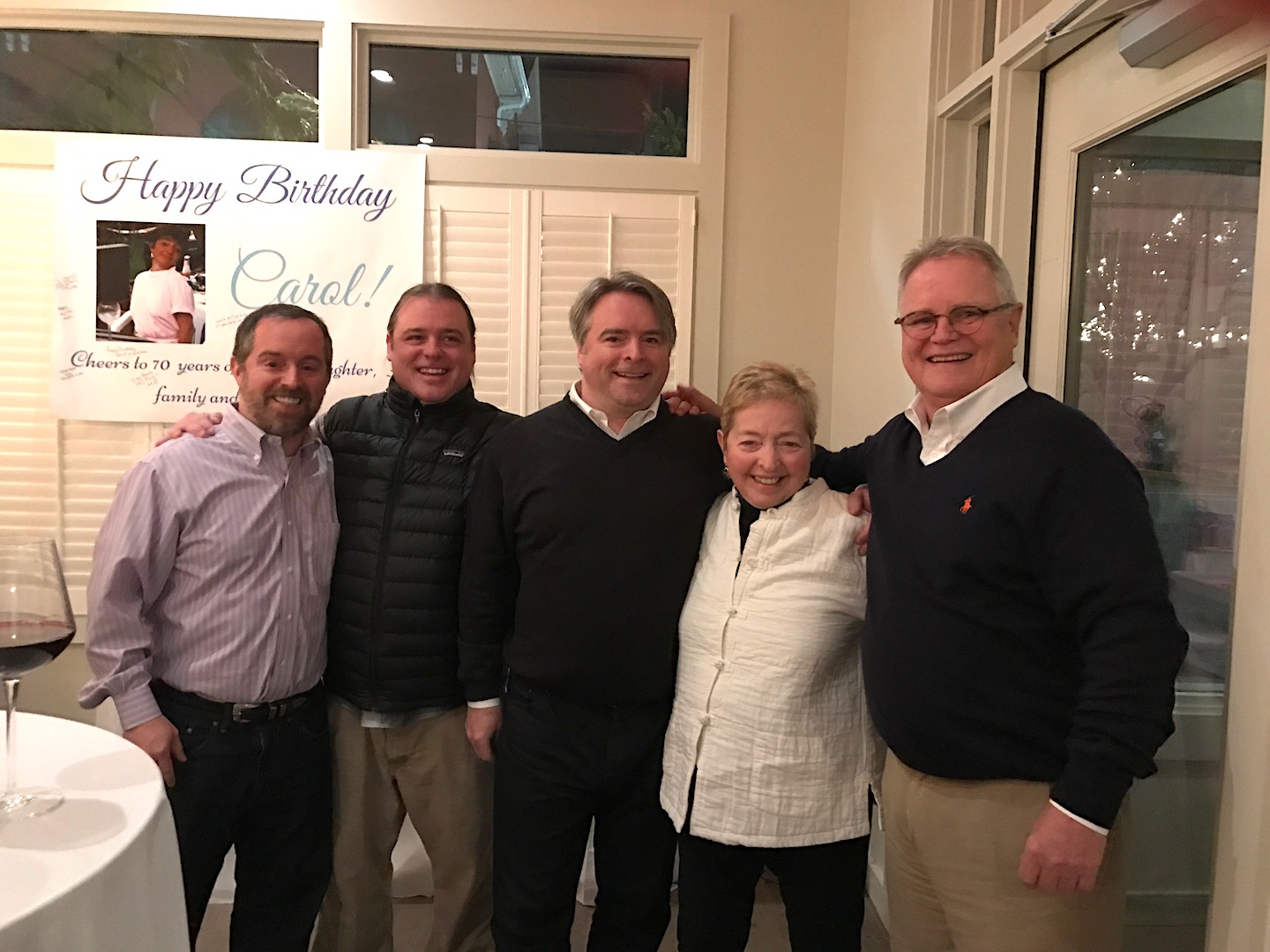
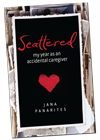 Scattered: My Year As An Accidental Caregiver is available in paperback and eBook at
Scattered: My Year As An Accidental Caregiver is available in paperback and eBook at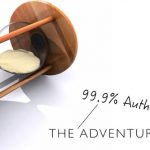




Very Compelling story. Remarkable insights.
This love story is an incredible journey of admiration that is now in print. Every couple who embarks on life’s adventure desires to feel the love Carol poured into George in their younger years and George into Carol during their final seven years. Thank you for your transparency and accountability and George’s desire to present his best self that made an indelible mark on his son’s and generations to come.
Thanks for your comment, Sarah. And thank you for listening! All the best – Jana